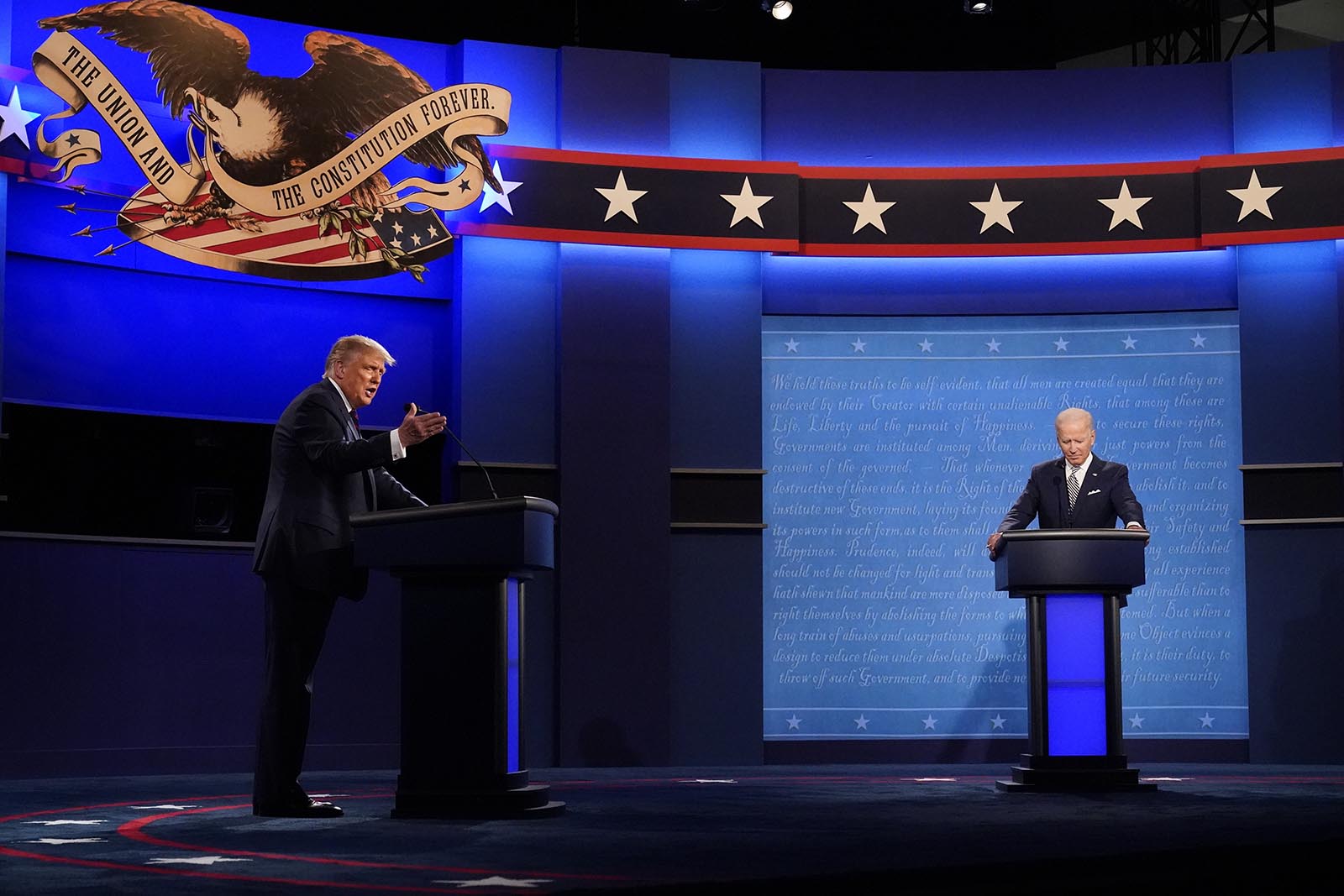Potential Moderators and Their Backgrounds: Who Is Moderating The Next Presidential Debate

Choosing the right moderator for a presidential debate is crucial. The moderator plays a significant role in setting the tone of the discussion, ensuring a fair and balanced exchange of ideas, and keeping the candidates focused on the issues.
The selection of a moderator is often a subject of debate itself, with various perspectives on the ideal qualifications and experience.
Potential Moderators and Their Backgrounds, Who is moderating the next presidential debate
A number of individuals have emerged as potential moderators for the next presidential debate. These individuals bring a diverse range of backgrounds and experiences to the table, each with their own strengths and perspectives.
- Lester Holt: A veteran journalist with extensive experience in covering politics and national affairs, Holt currently serves as the anchor of NBC Nightly News. He is known for his calm demeanor and ability to navigate complex issues. Holt moderated the first presidential debate in 2016, which was widely praised for its professionalism and fairness.
- Savannah Guthrie: Guthrie is a co-anchor of NBC’s Today show and has a long history of covering political news. She has also moderated several high-profile events, including the 2020 Republican National Convention. Guthrie is known for her sharp questioning and ability to hold candidates accountable.
- David Muir: As the anchor of ABC World News Tonight, Muir is another experienced journalist with a strong background in covering political events. He is known for his ability to connect with audiences and his insightful reporting.
- Norah O’Donnell: O’Donnell, the anchor of CBS Evening News, has a deep understanding of politics and a reputation for being a tough but fair interviewer. She has moderated several political events, including the 2020 Democratic National Convention.
- Jake Tapper: Tapper is a CNN anchor and chief Washington correspondent, known for his in-depth coverage of politics and his ability to challenge politicians on their positions. He has moderated several debates and town halls, including the 2016 Republican primary debates.
- Anderson Cooper: Cooper, a CNN anchor, has gained recognition for his coverage of major news events, including the 2016 presidential election. He is known for his ability to remain calm under pressure and to ask tough questions.
The selection of a moderator will likely be a complex process, taking into account factors such as the moderator’s experience, reputation for neutrality, and ability to manage a high-pressure situation.
Challenges and Considerations for Moderation

Moderating a presidential debate is a complex and demanding task, requiring a delicate balance of skills and considerations. The moderator must navigate various challenges, ensuring a fair and informative discussion for the audience.
Balancing Time and Ensuring Fairness
The moderator must allocate time fairly to each candidate while adhering to the debate’s overall structure. This requires careful planning and flexibility to address unexpected situations, such as extended answers or interruptions.
- A common challenge is managing the time allotted to each candidate, ensuring equal opportunities to present their views. This requires the moderator to be firm but respectful in redirecting candidates back to the topic at hand and keeping them within their allotted time.
- The moderator must also be prepared to handle interruptions, which can disrupt the flow of the debate and make it difficult for viewers to follow the discussion. This may involve politely reminding candidates to allow each other to speak or stepping in to re-establish order.
Potential for Bias and Maintaining Neutrality
The moderator’s role is to facilitate a neutral discussion, avoiding any perception of bias or favoritism towards a particular candidate. This requires a deep understanding of the issues being debated and the ability to ask questions that are relevant and impartial.
- The moderator’s background, past statements, and personal views can influence their approach to the debate, leading to accusations of bias. Therefore, it is crucial to select a moderator with a reputation for neutrality and objectivity.
- The moderator must avoid framing questions in a way that favors one candidate over another. Questions should be clear, concise, and open-ended, allowing candidates to express their perspectives without undue influence.
Impact of Social Media and Public Opinion
Social media and public opinion play an increasingly significant role in presidential debates, influencing the moderator’s approach and the overall perception of the event.
- The moderator must be aware of the prevailing narratives and public sentiment surrounding the debate, as these can influence the questions asked and the tone of the discussion. This requires staying informed about current events and public discourse surrounding the candidates and their positions.
- The moderator must also be mindful of the potential for social media to amplify misinformation and create a hostile environment for the participants and viewers. This may involve addressing misleading information or redirecting the discussion away from inflammatory topics.
Who is moderating the next presidential debate – The next presidential debate will be a crucial moment in the election cycle, and the moderator’s role is essential. We’ve seen how impactful a moderator can be, and it’s interesting to consider how someone like linsey davis , known for her sharp questioning and balanced approach, might handle the pressure.
The moderator’s choices will influence the tone and focus of the debate, shaping the public’s perception of the candidates.
The next presidential debate is a crucial event, with the moderator playing a vital role in guiding the discussion. It’s important to consider the role of technology in such events, much like the potential impact of cryptocurrencies like ripple xrp on the financial landscape.
Just as the moderator shapes the debate, the adoption of new technologies can shape our future. Ultimately, the choice of moderator for the next presidential debate will have a significant impact on the direction of the conversation and the public’s understanding of the issues at hand.
